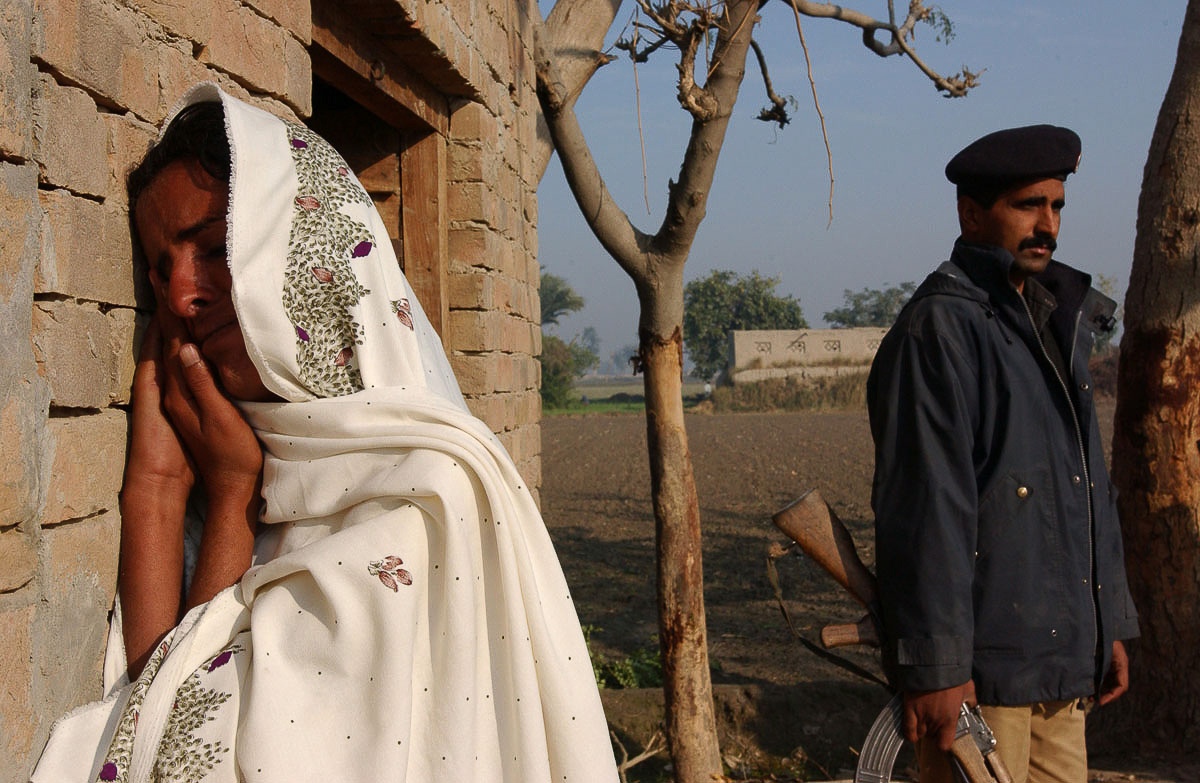From 'Honour Killings' To 'Revenge Rape': 20 People Arrested For Rape Of Teen Girl In Pakistan
THE CITIZEN BUREAU

NEW DELHI: A search operation is underway in Pakistan’s Multan province to arrest members of a panchayat that ordered the rape of a 16 year old girl. The council, comprised of about 40 men, ordered the rape as ‘revenge’ or retribution for another rape in the village.
The FIR filed at the local police station in Muzaffarabad's Rajpur area states that a 12 year old girl, identified as F*, was raped by a man while cutting grass in a field on July 16. On July 18, the panchayat ordered F's brother to rape 17-year-old N*, the sister of the accused. The police report states that N was dragged to the area where the panchayat was convened and was raped before the men and her parents.
“A jirga [village council] had ordered the rape of a 16-year-old girl as punishment, as her brother had raped a 12-year-old,” police official Allah Baksh told AFP. Medical examinations confirmed that both girls had been raped.
The arrests took place after N’s parents filed an FIR, with a second FIR being filed in the local station. 20 of the council’s members have been arrested, with search operations currently underway for the others.
The incidents reflect a tragic reality in Pakistan and other parts of South Asia, where the concept of ‘revenge rape’ falls neatly within the same socio-cultural context where ‘honour killings’ remain part of everyday realities. A local jirga council or village panchayat, in this case, are bodies composed of village elders -- who often hand out their own forms of punishment to settle local disputes, entirely outside of the formal justice system.
In a famous case in 2002, a jirga ordered the gang rape of 28-year-old Mukhtar Mai, as punishment as her 12-year-old brother was accused of an affair with an older woman.The case gained prominence as Mai took the perpetrators to court -- a rare example of extraordinary courage on the part of a rape victim in Pakistan. In 2011, however, Pakistan’s top court overturned the conviction, upholding the decision of a lower court in doing so. The Supreme Court ordered the five men's immediate release, demonstrating the reality of rape victims in Pakistan, who have little chance of getting justice either through the informal social system or even through the formal legal process.
The widespread problem of local councils meting out their own form of ‘justice’ -- usually at the expense of an innocent woman -- gained international attention after a documentary on the subject won an Oscar recently. Director Sharmeen Obaid-Chinoy's film, “A Girl In The River: The Price Of Forgiveness” won in the best documentary short category in 2016. The documentary is the story of 19 year old Saba Qaiser -- who miraculously survived drowning in a river after having been shot in the head. Unsurprisingly, those who tried to finish her off were none other than her own relatives her father and uncle as happens in most such cases of 'honour'crime.
The film, however, is not just the story of a brave girl who defied death and is now living happily with the man she loved and risked her life for, but centred more on the law of forgiveness that protects the killers. Saba's father and uncle are now free, with little to no remorse for their actions.
Saba, having faced pressure from local elders and the clan, chose to forgive the men who attempted to kill her. A law in Pakistan allows a family member to forgive the perpetrator of a crime committed against them -- leading to all charges being dropped no matter the severity of the crime.
Even in the documentary, Saba’s father boasts that his action protected the “honour” of his clan. “Such grandstanding by a criminal is perhaps the most disturbing part of the documentary. One can hardly find any such example of the state being a silent spectator in the face of such defiance. One wonders if the murderers would have had the same response from the community had they been punished for the crime. Perhaps the narrative would have been very different if there was no legal provision of forgiveness,” wrote Zahid Hussain in an article on the subject published by IPS.
Although a few cases -- such as Mai’s or Saba’s -- gain media attention worldwide, the majority go unreported. In reality, ‘revenge rape’ and ‘honour killings’ remain a major problem in Pakistan, where village tribal councils often object to marriages that defy conventional pairing. According to Pakistan’s independent Human Rights Commission, about 1100 women were killed by relatives in the country in the last year alone.
(Pictured: Mukhtar Mai)



